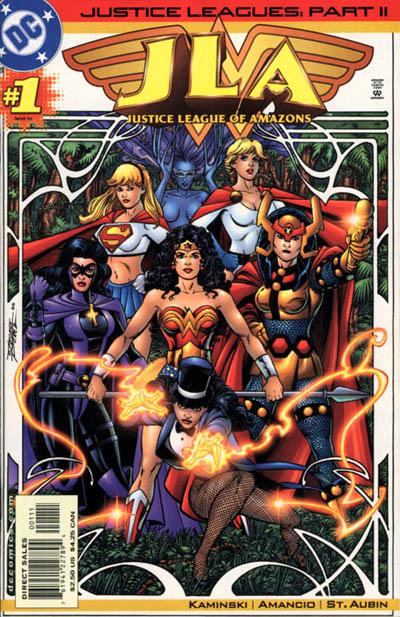Girl Power
Ran into an interesting article from out of Brownsville about the city’s first female comic shop owner. Actually, most of the article focuses on women who read comics, and what they prefer to read.
While the Japanese-style art can be popular among female readers, Hodge has an even mix of men and women as readers. She said every reader is different, and shouldn’t be limited by gender.
“Female readers aren’t some strange creatures that you ‘figure out’ to cater to,” she said. “The comics just have to be good, interesting stories. If the comic book industry treats female readers as an oddity, we notice, and we don’t like feeling that way. So we wouldn’t buy a book that makes us feel so.”
Hodge has enjoyed comics of all kinds since she was little.
“My mom would bring me the comics from the newspaper and I would try to draw them as practice,” she said. “As a teenager though, I became very interested in anime, with Sailor Moon being the first show to really catch my interest.”
The rising popularity of Japanese anime provided an eye-opener for many young girls over the past decade.
Manga comics are probably the most popular comics with female readers, but it’s far from universal.
Just as male audiences associate themselves with the suave James Bond or gruff Wolverine, Martinez said some women like to put themselves in the stiletto-heeled shoes of super-heroines.
“These women have the power to be sexy, but powerful,” she said. “A girl can be voluptuous and still go medieval on you.”
With Martinez’ husband ready to publish his first comic book, the Brownsville-based hero Opossum, and Martinez herself a big collector, the couple’s daughter has grown up surrounded by comic books.
“I like Batman, Superman, Transformers,” said Angelina Hernandez, 7.
(…)
Blanco said female super-heroes are a good way for girls to get into reading comics. Younger girls can expand their reading skills and women can escape the stresses of the real world with fantasy.
Wonder Woman, the most famous female super-hero, comes highly recommended by Blanco.
“She’s just such a strong character and she’s dealing with more realistic things,” she explained.
Whatever their interests, Blanco suggests more women give comic books a chance.
“Just try something new and you’ll always have something to look forward to every month when the next story comes out,” she said. “Even if they are talking about stories in space or something else, it’s something different.”
There are a bunch of female comics readers who are big fans of superheroes — Ragnell and Kalinara are both big fans of traditional spandex-clad superheroes, plus there’s Ami Angelwings, Karen Healy, and Valerie D’Orazio, not to mention When Fangirls Attack, Sequential Tart, and the Feminist SF Carnival.
But as D’Orazio found while talking to people at Comic-Con in San Diego, most female comics readers are definitely not reading superheroes. And an ongoing problem for the major comic book companies is that they seem to be almost completely unable to market comics to anyone but white males.
Why? Because building an audience is very hard work. Traditional comics have several decades of built-in audience — again, mainly white males. Building an audience beyond white males has a lot of roadblocks in the way — it’s hard to convince new audiences that they should be interested in comics, because women and non-whites are used to thinking of comics as a “white-guys-only” medium. And comics companies are usually parts of large corporations — and if one particular comic doesn’t sell a lot of copies, the corporate bean counters may order the plug pulled.
Is there a solution? Other than slow change over many years, probably not. Eventually, more women may start reading comics. Eventually, more comics companies may start to try to appeal to more female readers. But a rapid sea change for the industry probably isn’t possible.
So how ’bout it? Girls — what comics do you like to read, or what would convince you to start reading comics? And boys — would you be willing to read a “girl-centric” comic, or do you read them already?

